Premium Only Content
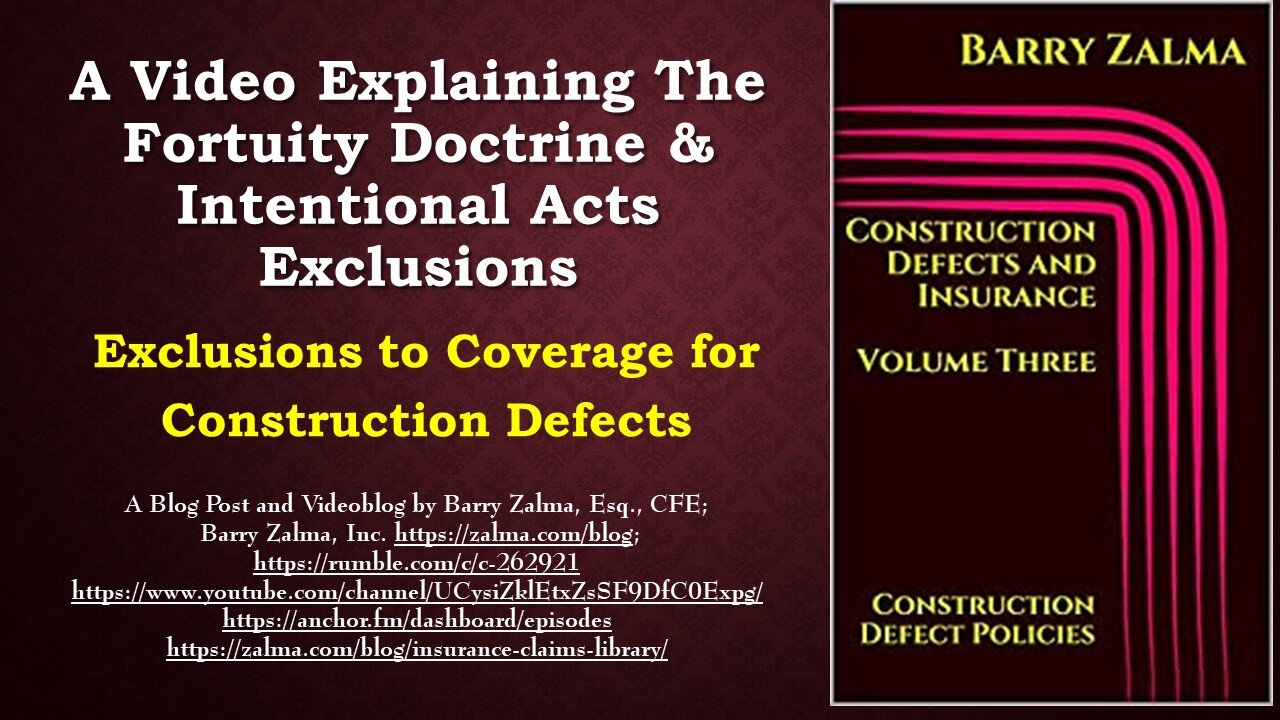
A Video Explaining The Fortuity Doctrine & Intentional Acts Exclusions
Exclusions to Coverage for Construction Defects
Implicit in the concept of insurance is that the loss occur as a result of a fortuitous event not one planned, intended, or anticipated. Oddly, the fortuity principle never appears in insurance contracts. The principle is rooted in common law and in the statutes of at least six states. The fortuity principle has the effect of an exclusion. That is, an all-risk policy might provide coverage for all risks minus named exclusions, but never provides coverage for non-fortuitous events, even though non-fortuitous events are not named exclusions in the policy. For this reason, the fortuity principle is sometimes called the unnamed exclusion.
A fortuitous event is an event which so far as the parties to the contract are aware, is dependent on chance. It may be beyond the power of any human being to bring the event to pass; it may be within the control of third persons; it may even be a past event, such as the loss of a vessel, provided that the fact is unknown to the parties. Compagnie des Bauxites de Guinee v. Ins. Co. of N. Am., 724 F.2d 369,372 (3d Cir. 1983) (quoting Restatement of Contracts § 291 cmt. A (1932))
“The purpose behind the fortuity doctrine applies with full force where a party attempts to purchase insurance against the consequences of his own ongoing wrongful conduct.” (Scottsdale Ins. Co. v. Travis, Court of Appeal of Texas, 68 S.W.3d 72 (2001))
Intentional Acts Exclusions
Judge Cardozo, in 1923, stated a simple and obvious rule of law that “no one shall be permitted to take advantage of his own wrong. {Messersmith v. American Fidelity Co., 232 N.Y. 161, 133 N.E. 432 (1921).] California, by statute, covers has codified Cardozo’s statement. Almost every insurance policy issued in the US excludes the intentional acts of the insured. Those that do not are covered by the public policy adopted by most states. To insure against wrongful acts would be to allow people to act wrongfully with no adverse effect since their victims would be compensated by insurance.
Insurance involves the transfer of the risk of possible losses from the policyholder to the insurer. It is not available for losses that the policyholder knows of, plans, intends, or is aware are substantially certain to occur. Insurers faced with a construction defect claim may attempt to exclude coverage by claiming that the insured intended to build a defective structure. This is not a wise option to exercise unless the insurer has clear and convincing evidence of such intent.
© 2021 – Barry Zalma
Barry Zalma, Esq., CFE, now limits his practice to service as an insurance consultant specializing in insurance coverage, insurance claims handling, insurance bad faith and insurance fraud almost equally for insurers and policyholders. He also serves as an arbitrator or mediator for insurance related disputes. He practiced law in California for more than 44 years as an insurance coverage and claims handling lawyer and more than 52 years in the insurance business. He is available at http://www.zalma.com and zalma@zalma.com.
Mr. Zalma is the first recipient of the first annual Claims Magazine/ACE Legend Award.
Over the last 53 years Barry Zalma has dedicated his life to insurance, insurance claims and the need to defeat insurance fraud. He has created the following library of books and other materials to make it possible for insurers and their claims staff to become insurance claims professionals.
Go to the podcast Zalma On Insurance at https://anchor.fm/barry-zalma; Follow Mr. Zalma on Twitter at https://twitter.com/bzalma; Go to Barry Zalma videos at Rumble.com at https://rumble.com/c/c-262921; Go to Barry Zalma on YouTube- https://www.youtube.com/channel/UCysiZklEtxZsSF9DfC0Expg; Go to the Insurance Claims Library – https://zalma.com/blog/insurance-claims-library/ Read posts from Barry Zalma at https://parler.com/profile/Zalma/posts; and Read last two issues of ZIFL here.
-
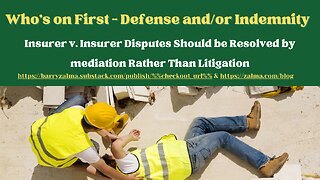 10:17
10:17
Barry Zalma, Inc. on Insurance Law
11 months agoWho's on First - Defense and/or Indemnity
174 -
 16:55
16:55
Barry Zalma, Inc. on Insurance Law
4 years agoA Video Explaining Intentional Acts Exclusions
72 -
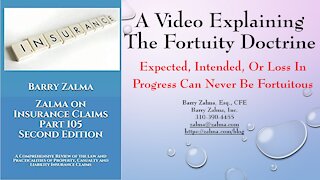 21:18
21:18
Barry Zalma, Inc. on Insurance Law
4 years agoA Video Explaining The Fortuity Doctrine
27 -
 16:17
16:17
Barry Zalma, Inc. on Insurance Law
4 years agoA Video Explaining the Concurrent Cause Doctrine
39 -
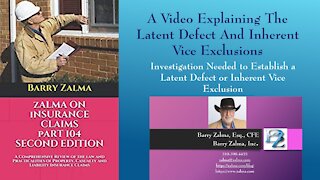 11:12
11:12
Barry Zalma, Inc. on Insurance Law
4 years agoA Video Explaining the Latent Defect and Inherent Vice Exclusions
23 -
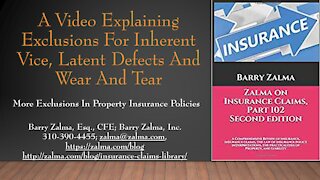 15:11
15:11
Barry Zalma, Inc. on Insurance Law
4 years agoA Video Explaining Exclusions for Inherent Vice, Latent Defects and Wear and Tear
71 -
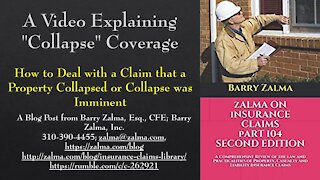 17:01
17:01
Barry Zalma, Inc. on Insurance Law
4 years agoA Video Explaining "Collapse" Coverage
158 -
 18:36
18:36
Barry Zalma, Inc. on Insurance Law
3 years agoA Video Explaining More Construction Defects
95 -
 16:51
16:51
Barry Zalma, Inc. on Insurance Law
3 years agoA Video Explaining the Structure of Insurance
122 -
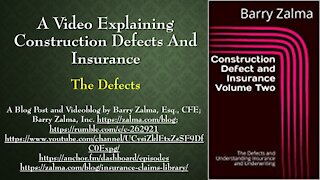 15:47
15:47
Barry Zalma, Inc. on Insurance Law
3 years agoA Video Explaining Construction Defects and Insurance
39